Social Apartment as "Third Place"|Neighbors Esaka
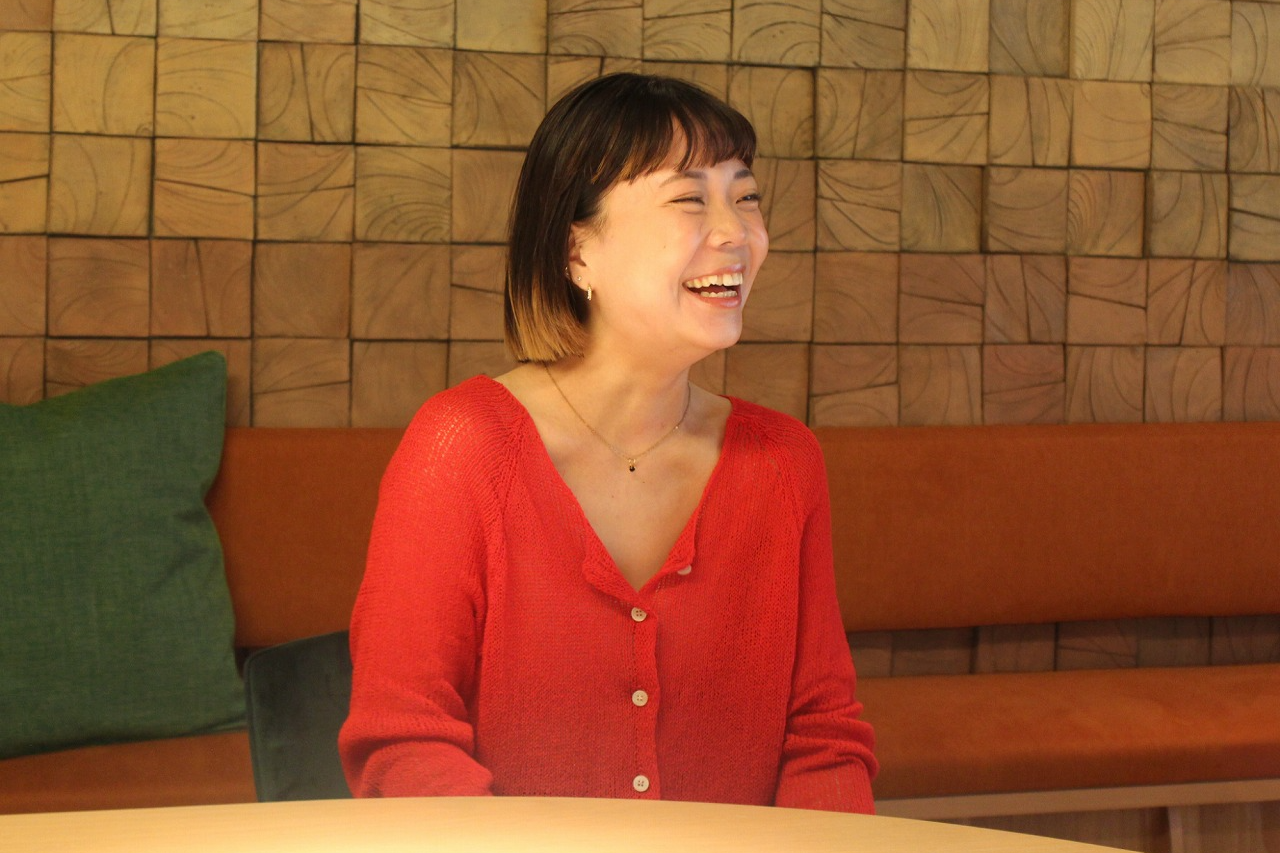
Social apartments are exchange-style rental condominiums with a lounge and other ample public spaces. It is a new style of living where you can enjoy communication with other residents while maintaining your privacy.
In this issue of "Neighbors Stories," we interview a resident who describes her encounters, changes, and growth at a social apartment. This time, we interviewed Monica, a resident of Neighbors Esaka.
She is a university student who will enter the workforce next year. She was born and raised in Brisbane, Australia, and moved to Japan when she was in high school. She is a student with high aspirations for her studies and part-time job, and has found Neighbors Esaka as a "Third Place".
Third Place" here means a "third place" that is not at home, school, or work. We interviewed Monica, who says, "This place, which is neither home nor school, allows me to accept any kind of person in a neutral way.
Monica, please begin by introducing yourself!
My name is Monica, and I live at Neighbors Esaka. I am currently a senior at university and have been living here for a year and a half. I was born and raised in a city called Brisbane, Australia, and moved to Japan when I was in high school. I am often told by people around me that I have a bright and powerful personality! I grew up as the youngest of seven sisters and brothers, so I may have a strong competitive spirit (laugh).
What fields of study are you studying at university?
I am studying a wide range of subjects, including anthropology, AI, geopolitics, and philosophy. I am particularly interested in the geopolitics of the Asia-Pacific region.
I was born and raised in Australia, but my nationality is Japanese. My mother is Japanese and my father is Korean, born and raised in Japan with Korean roots. I was shocked to hear this fact from my mother when I was in the 5th grade of elementary school. From there, I wanted to know more about my background and became interested in Asian geopolitics.
This interest also led me to take advantage of the dual degree program, which allows students to earn a degree from a foreign university while attending a Japanese university, and I studied in Australia during my junior year and took classes at a Japanese university the rest of the time.
What year were you in college when you moved into the social apartment?
I was in my third year of university when I returned from Australia. Actually, I had taken a leave of absence from university last year to concentrate on job hunting. I will be returning to school as a fourth-year student this October.
I will be working for a Japanese IT company from April as a new graduate.
A cup of coffee changed my mind about what it means to be "perceptive.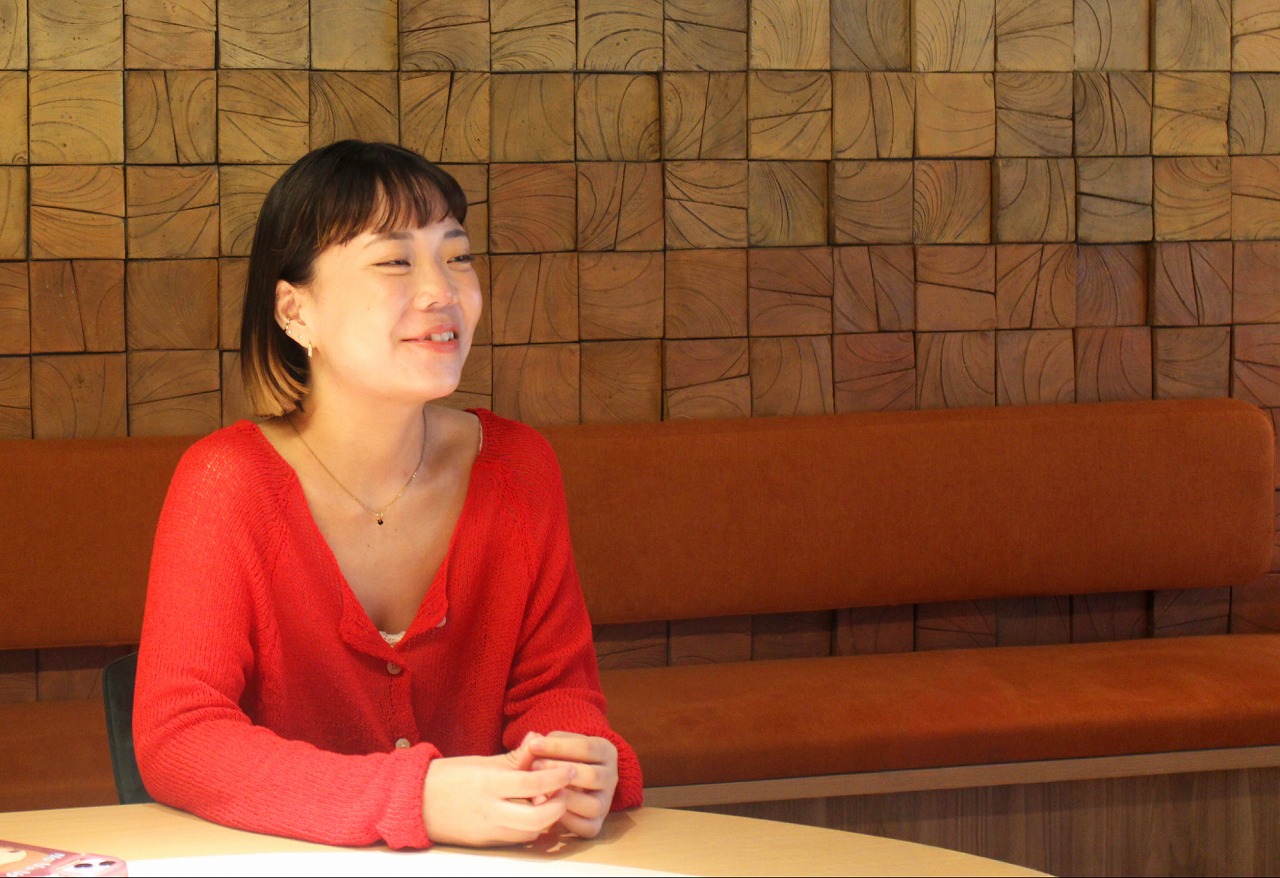
Monica, have you experienced any culture shock since moving to Japan?
When I entered university, I was puzzled by the culture of "adjusting to one's surroundings" and "reading the atmosphere.
In Australia, I thought that being assertive in words was the right thing to do, but it was a big culture shock to learn at university and part-time jobs in Japan that being too assertive can disrupt the harmony of the place.
Although I knew what the words "reading the air" and "being aware of your surroundings" meant, I may not have understood them well as theoretical theories until then. Knowing the meaning of these words and actually experiencing them made all the difference. I wanted them to insist rather than guess, and there were times when I wondered, "What am I supposed to read in the air?" I was sometimes puzzled by the question, "What do you mean by 'reading the air'?
I was also at times puzzled, " What do I mean by 'reading the air'?
When I was in high school, I went to an international school, so I didn't have any particular confusion or conflict, so I was quite troubled when I entered university.
But that confusion changed drastically when a friend at Neighbors Esaka gently offered me a cup of coffee. I was in the lounge studying hard. I'm sure he didn't want to disturb me, but he wanted me to take a break. The coffee he gently put down without saying a word was warmer than words, and it filled my heart with joy.
When you are working hard, someone's casual kindness can bring tears to your eyes, can't it?
I was overwhelmed by that kindness, and I realized, "Oh, yes. I realized that it was a good thing. It is possible to be more considerate of others by not asking, and it is also possible to offer kindness by looking at the situation without words. I realized that not saying a word is not silence or indifference, but the beauty of respecting the other person. I was full of feelings.
I found a place where I could be myself, life-size, without being judged by anyone.
Have you ever talked to your friends at Neighbors Esaka about the confusion and worries you were having?
I never talked about culture shock again, but I naturally began to confide in them about my job hunting and relationship problems. I had never been good at discussing things with them, but I think living in Esaka changed me little by little.
Before moving in, I had an identity complex, feeling too Australian for a Japanese and too Japanese for an Australian. My friends in Esaka accepted me as a human being, without judging me by my title or background. I think this sense of security encouraged me to open myself up.
Left: A photo taken at a surprise birthday party / Right: The first time I went to see a Hanshin game
Do you have any memorable words of advice given to you by your friends at Neighbors Esaka?
When I was struggling with my career path, a friend said to me, "Monica seems to enjoy talking about history. Couldn't you put that to work in your job?" I was so impressed by her words that I began a self-analysis and asked myself, "What would be the best job for me? From those words, I continued my self-analysis and found the axis of my career: "I want to eliminate prejudice from my immediate surroundings.
Are many of your friends from the same generation as you?
Not at all. They range from people in their early 20s to those who are more than a year older than me. They are of different nationalities as well, so I am exposed to a variety of viewpoints. Not only do they discuss their problems with me, but they sometimes ask me, a student, for advice about my work (laughs), which makes me happy because I feel that they see me as a human being.
It is a valuable opportunity to be able to connect with people without being bound by a framework, isn't it?
Yes, it is. All my life, I have been running as fast as I can toward some goal and not wanting to lose to anyone. But at Esaka, I can be the life-size Monica, not the "hard-working me" or the "me from Australia. Maybe I just needed a place where I could be myself without being bound by evaluations, labels, or age limits.
Have you expressed your feelings again to your friend who gently offered you a cup of coffee?
Actually, I haven't yet (laughs). I was kind of embarrassed. But I would like to tell him soon.
My Third Place, not at home or at school
Monica, if you had to sum up Social Apartment in one word, what kind of place would it be for you?
I think "third place" is the perfect word for me. It is a place of peace and relaxation where you can get away from the constant running and take time to reflect on yourself.
In this environment, I can honestly talk about any problems I have that I don't want to be evaluated by my friends and family. When I am tired of being evaluated, this community is an outlet for me. I'm sure everyone else is the same way.
The environment where people can have serious conversations about job hunting, relationships, love, etc., transcending social frameworks such as age and background, has become an indispensable place for me.
Farewell party for French friends
Lastly, do you have a message for those who are considering moving into a social apartment?
I think that people who are not sure about moving into a social apartment are struggling with something and want to change their situation.
I would like to tell those people that it is okay to take their time and think about it. I am sure your future self will make the right decision. And life after moving in is full of possibilities. Some people may experience a reversal of values like I did.
If there are people who are trying to make a decision to move in, I urge them to trust their decision and take the plunge!
[Editor's Postscript
Time spent talking to someone with the same passion, beyond age or title, may be a kind of entertainment.
As the author, I too have lived in a social apartment, and as I listened to Monica's story, I looked back and wondered what her fondest memories were. The first thing that came to mind was the time we spent in the lounge at night, talking about love and work over drinks. Strangely enough, I remember very little of what we talked about, but only the moments when we laughed and empathized with each other by bouncing our pet theories off each other. I still think it was a blissful time for me to spend such time with people I probably would not have met if I had not lived in a social apartment.
I am sure that Neighbors Esaka is such a place for Monica as well. Perhaps the more people who feel they have always been evaluated as "someone else," the more they need a place where they can be their own person.
I was honestly struck by the way she faced her own identity and tried to go her own way, using even her struggles as sustenance. I am very much looking forward to seeing how Monica will become more powerful in the future.
(Reporting and writing by Hayashi; Photography by Oshiro)
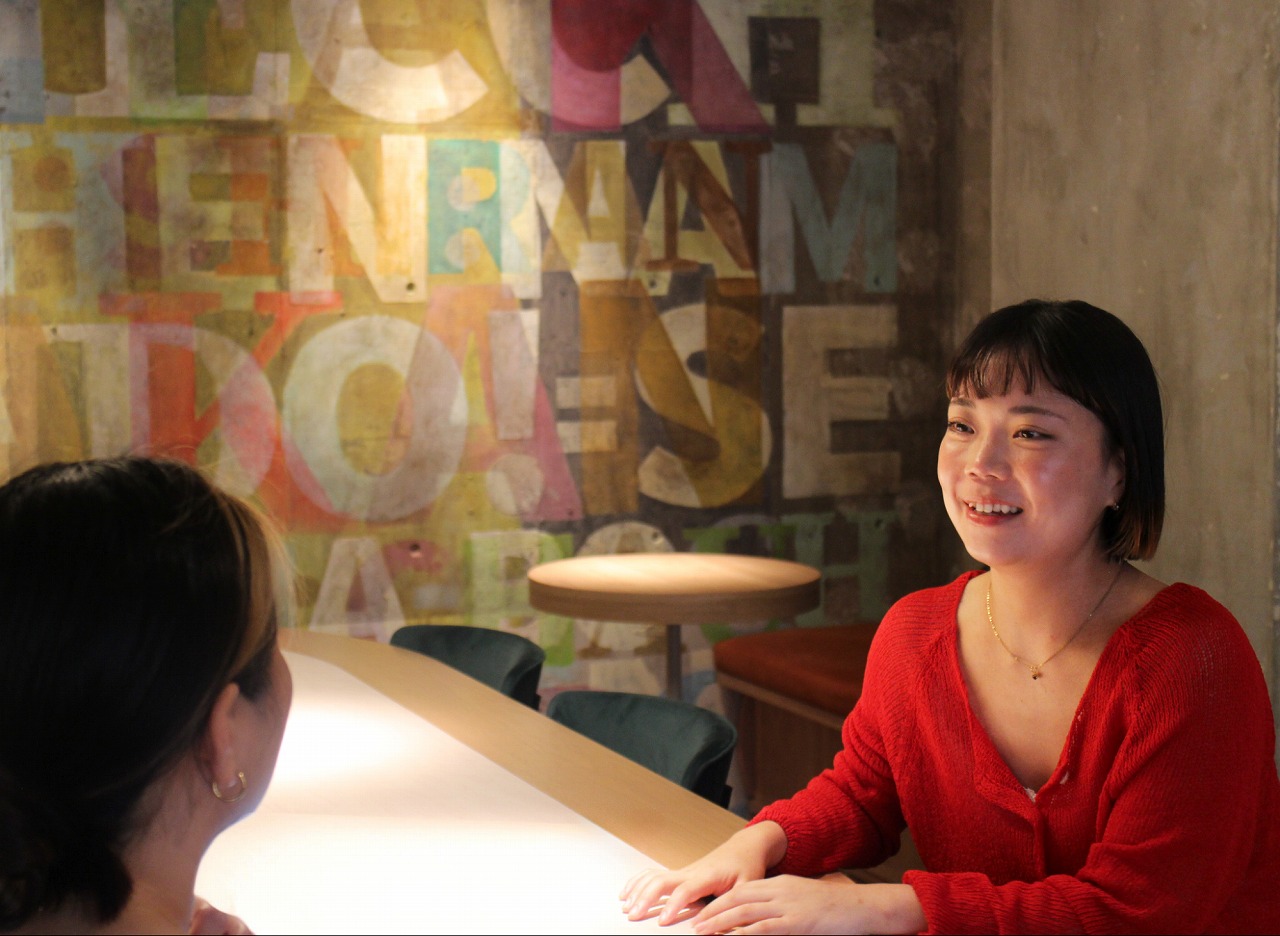
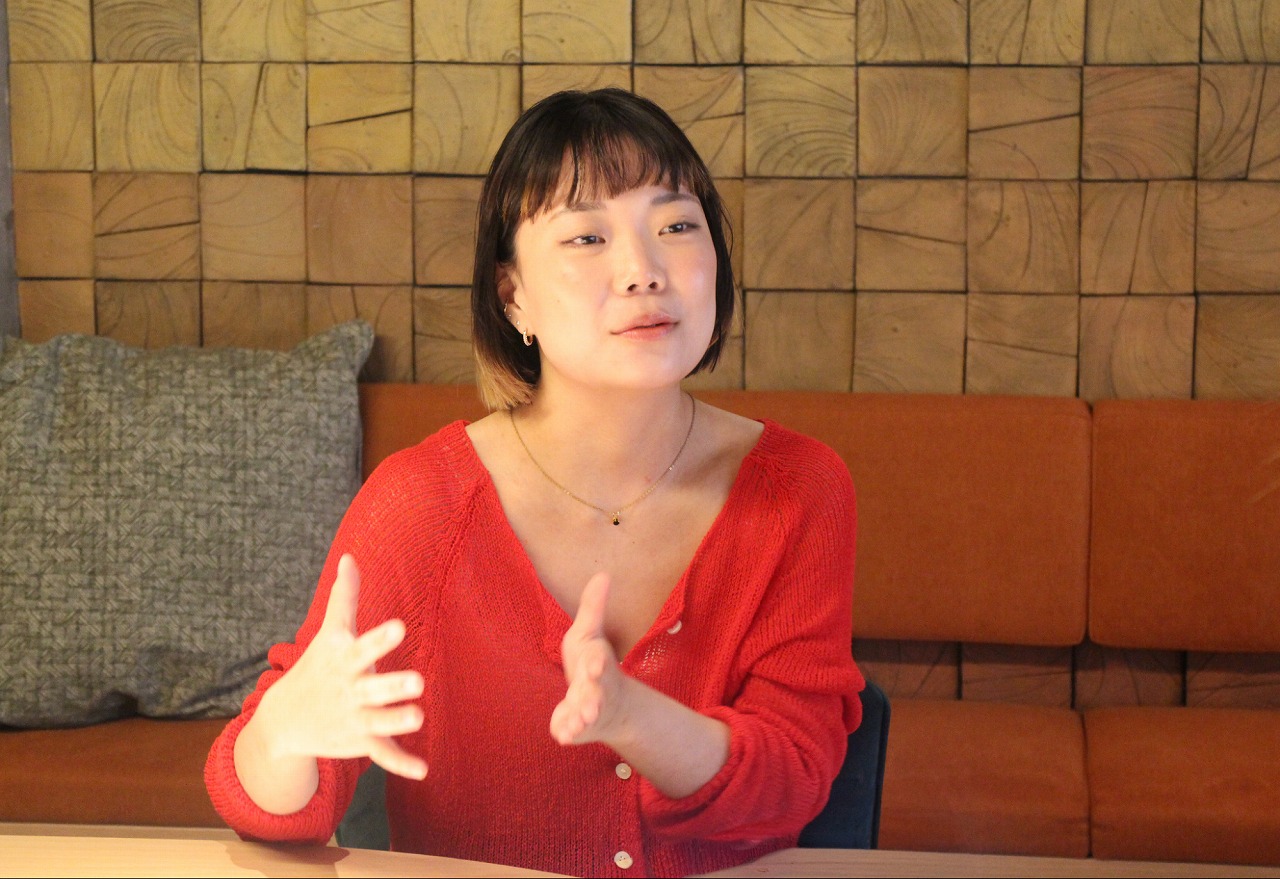
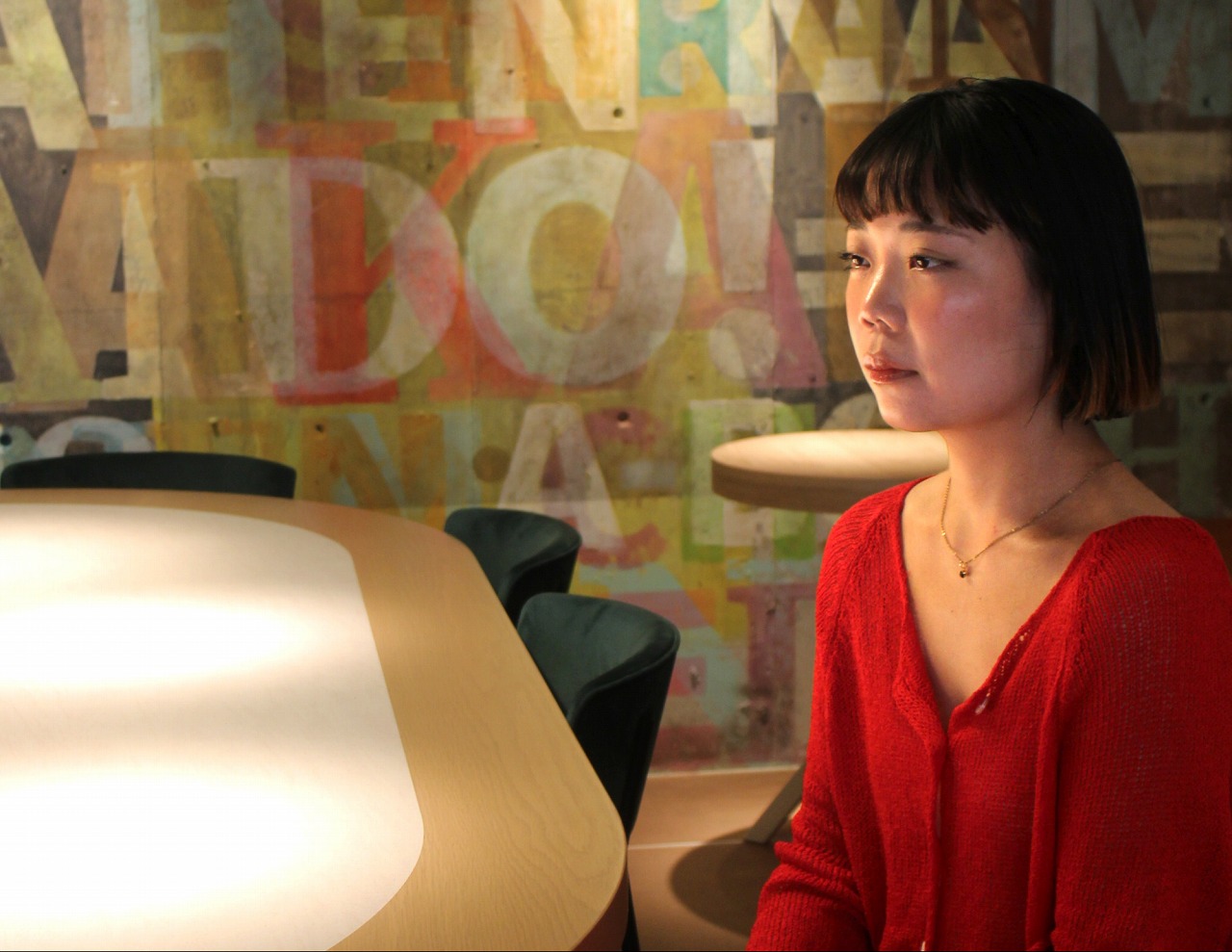
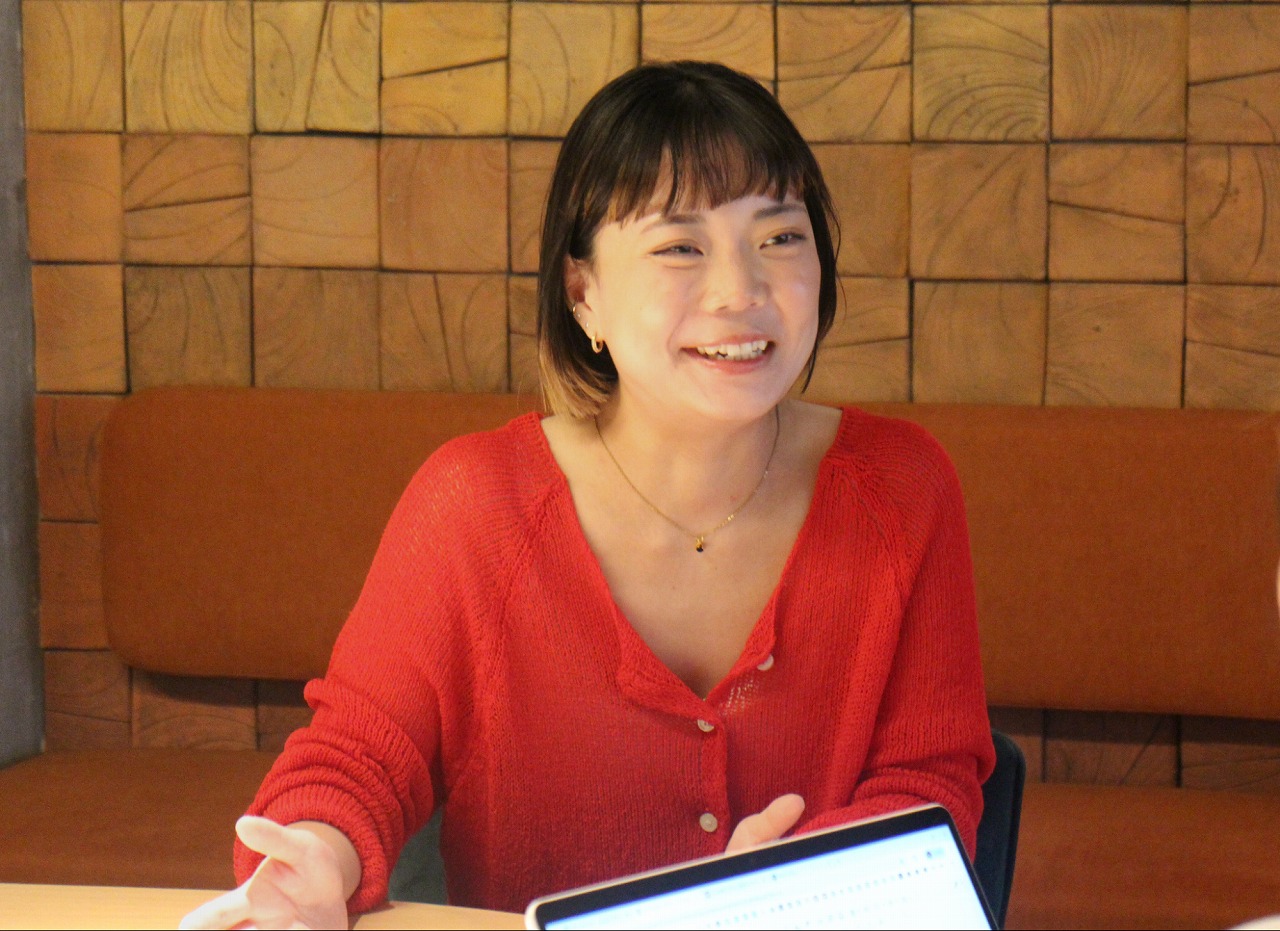
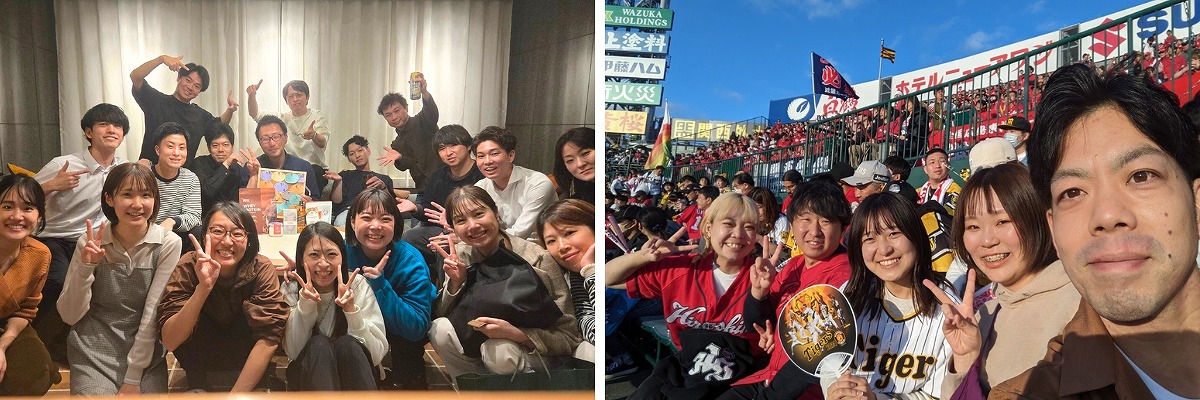
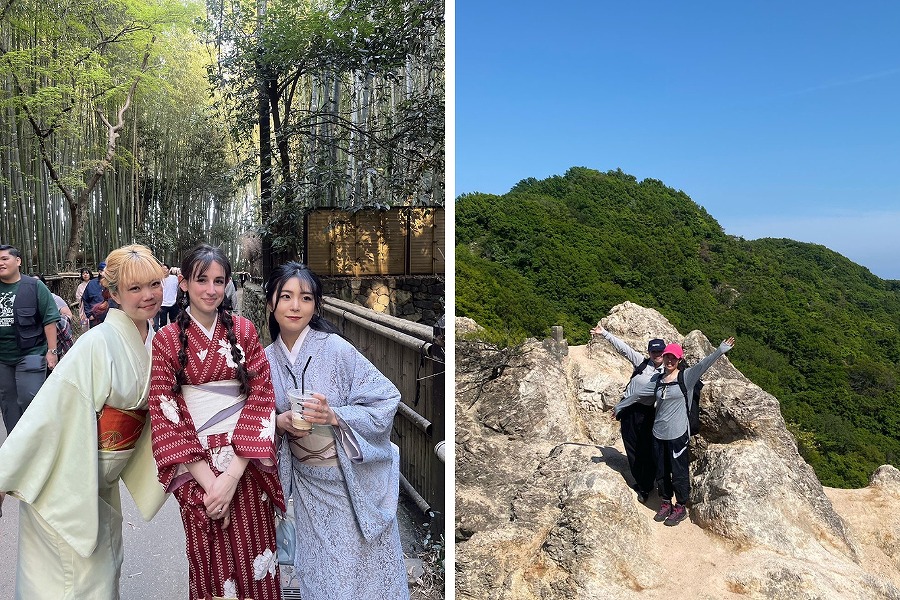
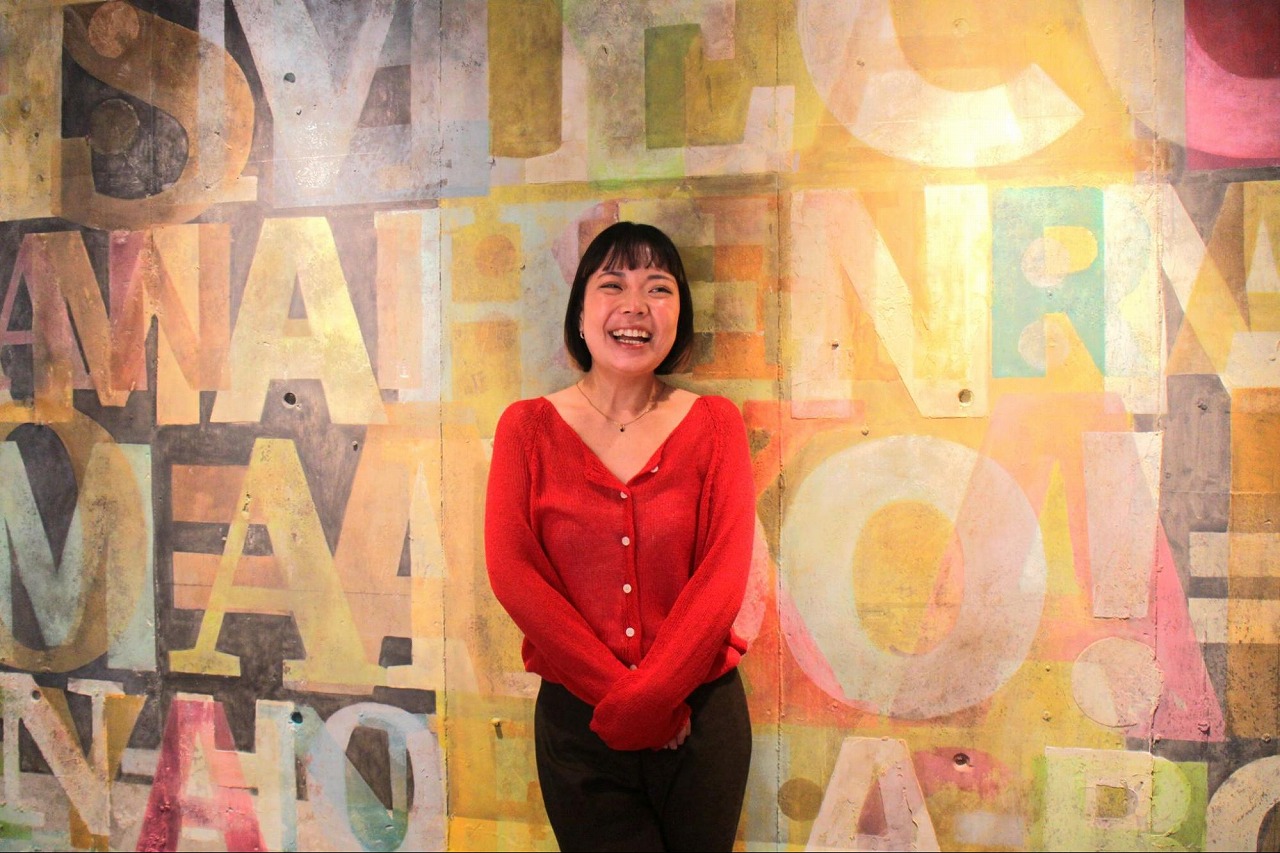
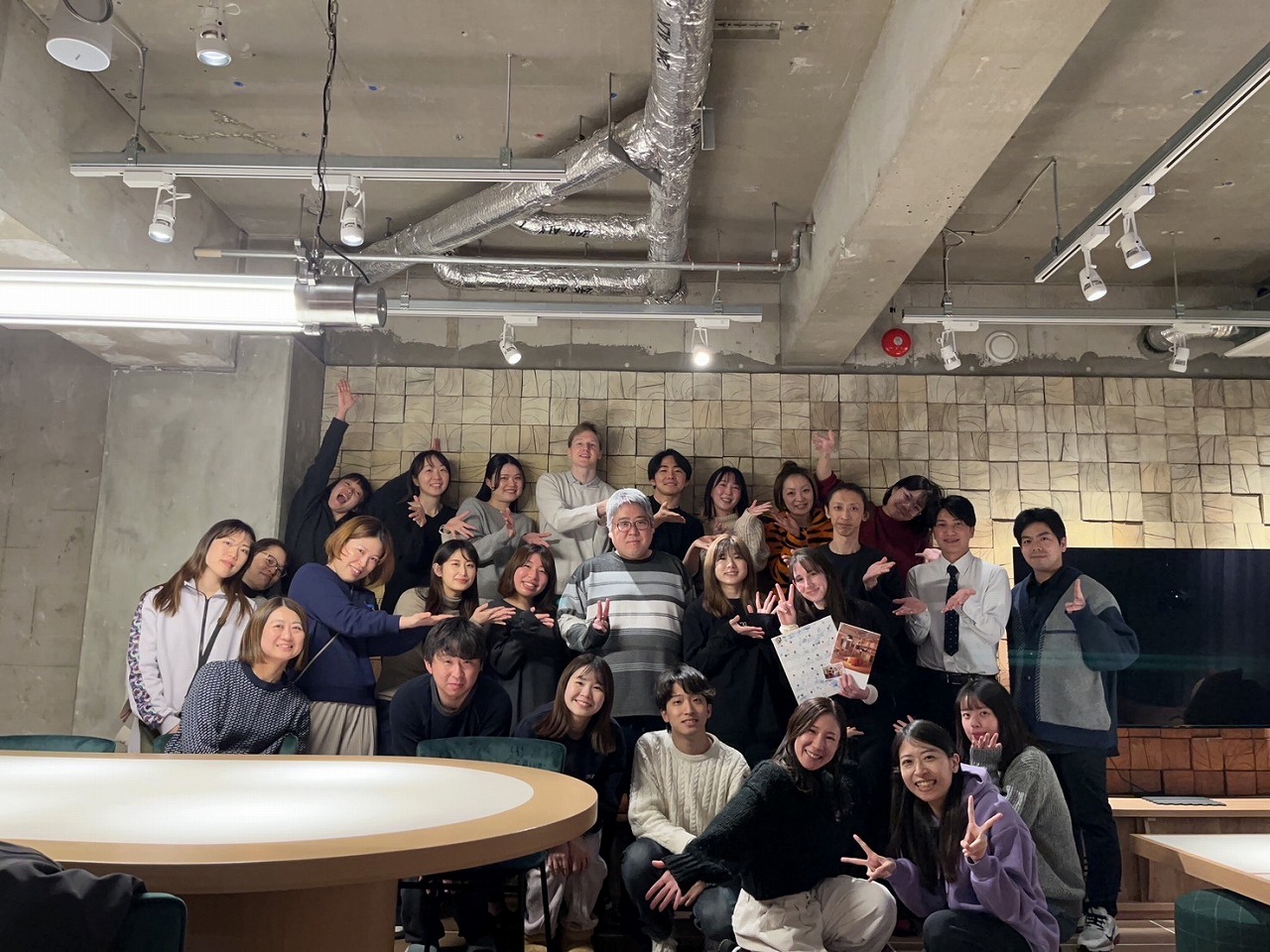

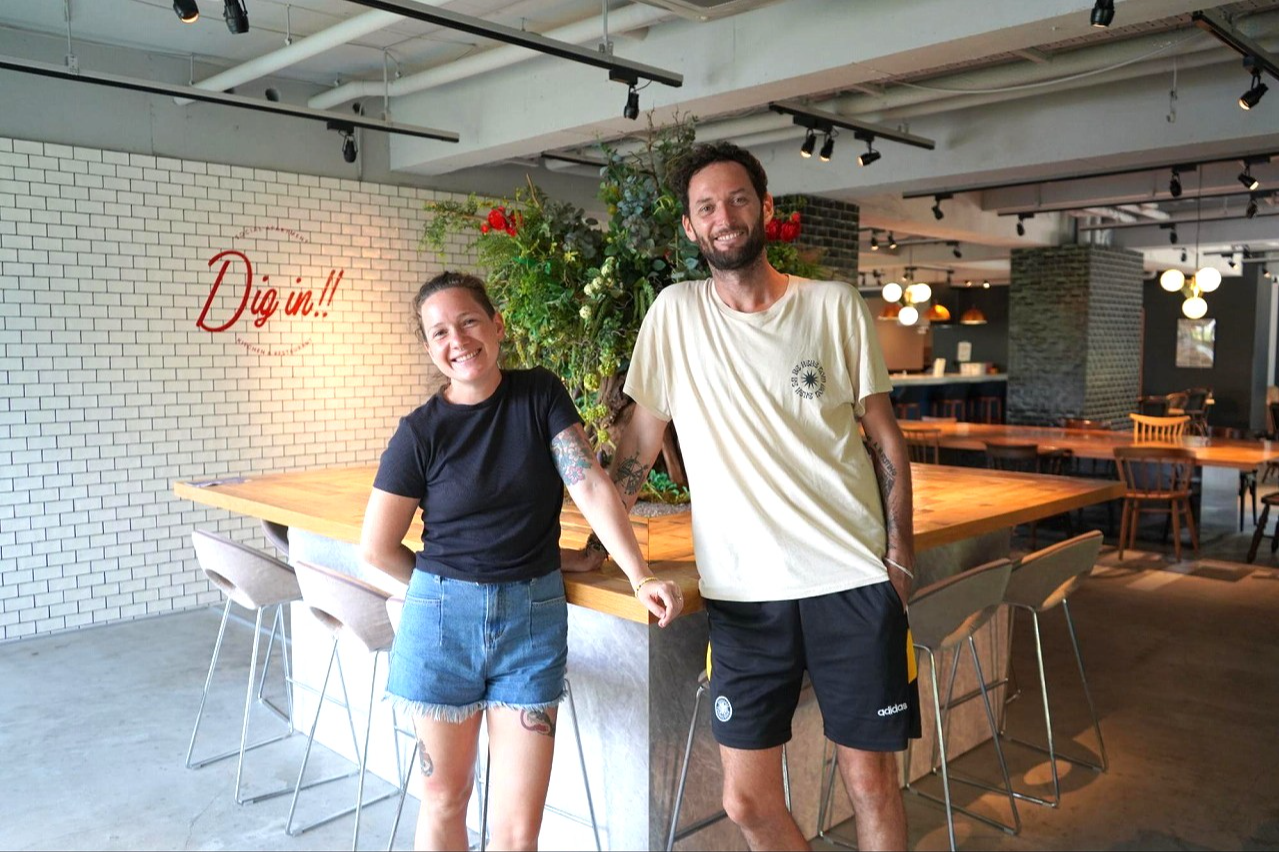
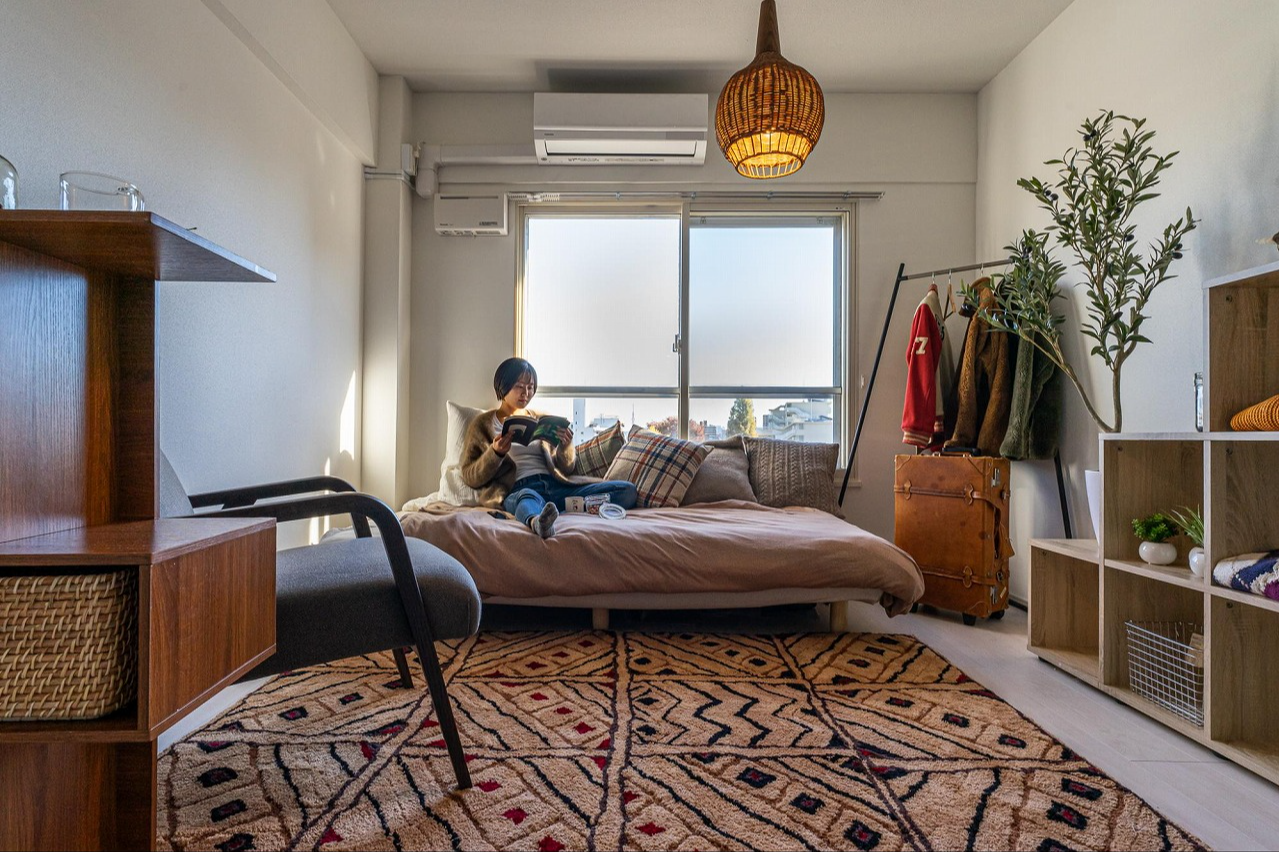
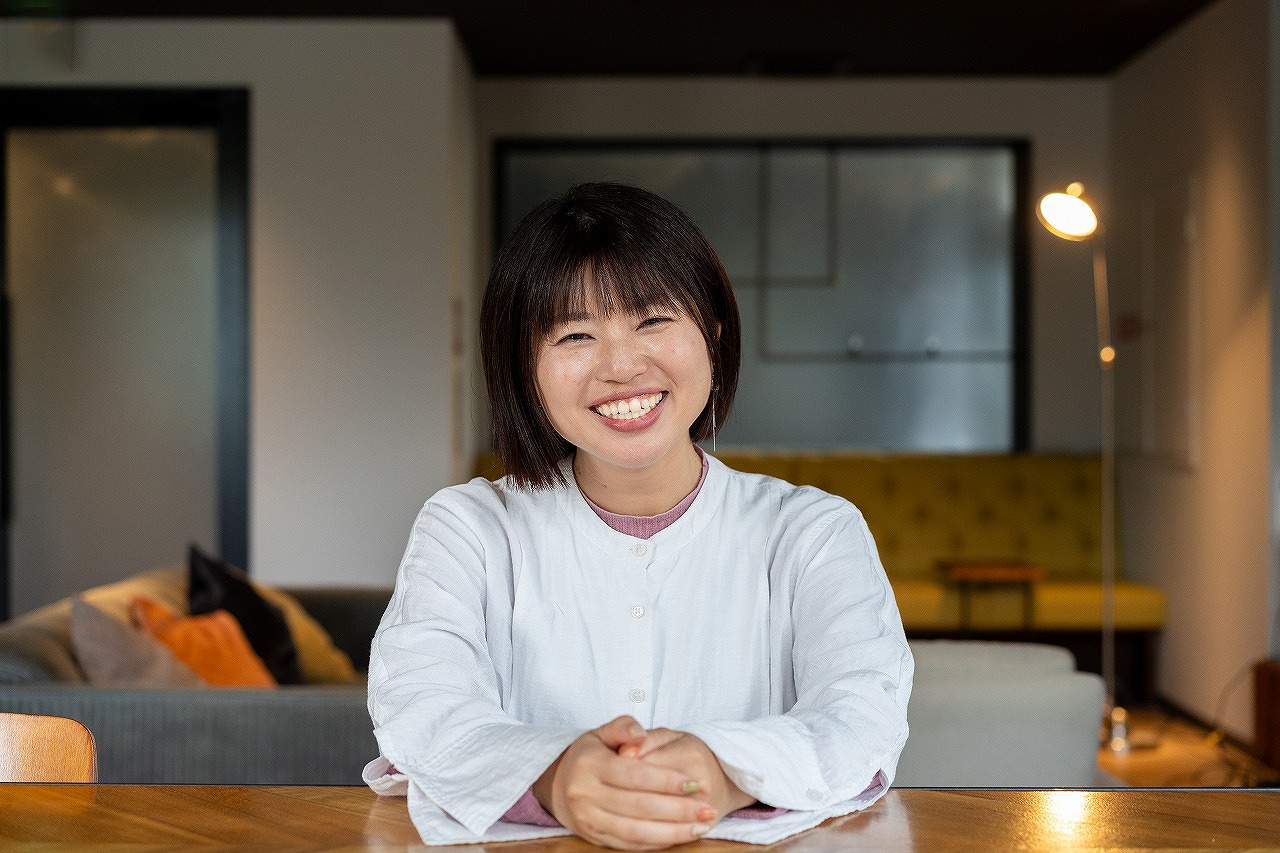
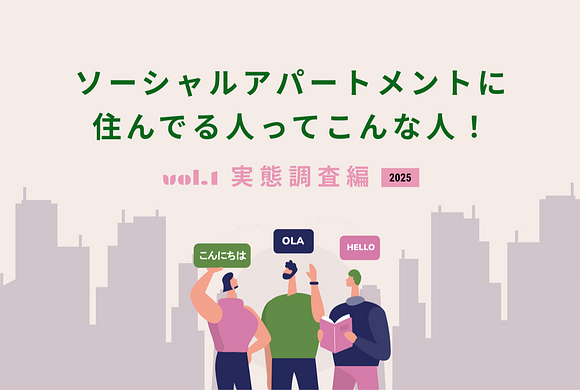
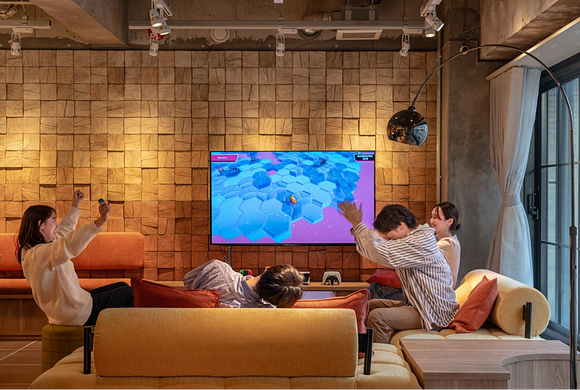
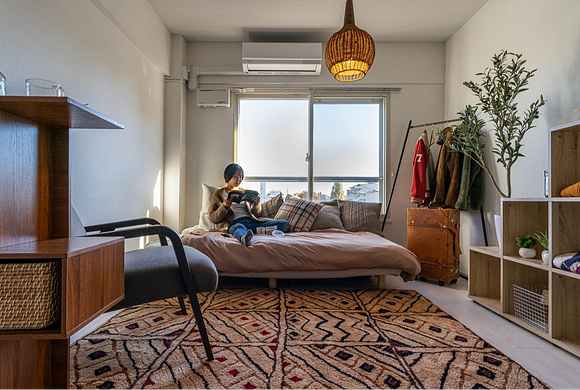
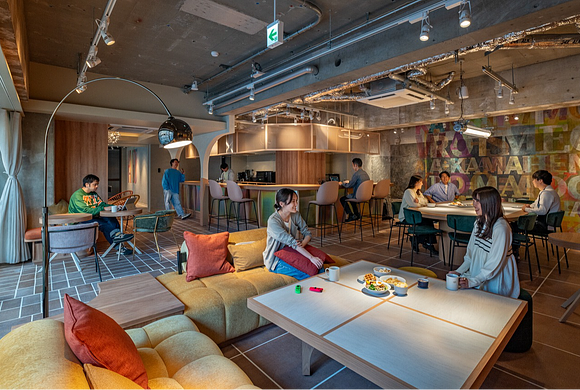

!["How’s The Community Actually?" - The Atmosphere of Community Revealed Through Various Living Experiences [Interview]](https://sa-site-production-strg.s3.ap-northeast-1.amazonaws.com/d6d8dhx8d7x9l1y71fbdjl4yiptw)


![大阪3物件の入居経験者に聞いた"オープニングメンバー"の魅力とは? | ネイバーズ江坂 [インタビュー]](https://sa-site-production-strg.s3.ap-northeast-1.amazonaws.com/mfsuk8xuaxo6b20lvhd76qyeuaxm)
![プロ料理人&DJが盛り上げる!約60名が参加したネイバーズ江坂の完成内覧会をレポート | ネイバーズ江坂 [イベントレポート]](https://sa-site-production-strg.s3.ap-northeast-1.amazonaws.com/t6qqti57dpevlghfwobhouehfuos)
![関西で5棟目となるソーシャルアパートメン「ネイバーズ江坂」が10月28日開業|[プレスリリース]](https://sa-site-production-strg.s3.ap-northeast-1.amazonaws.com/wfr0yo1f03ggtoeqhl59qsgo0ez9)

![「江坂ってどんな街?」街の人に聞いてみました!| ネイバーズ江坂 | [エリア紹介]](https://sa-site-production-strg.s3.ap-northeast-1.amazonaws.com/mgagq1mx4u8xedwxga6bnznpgoi5)

![アクセスだけじゃない!魅力たっぷりの江坂 | ネイバーズ江坂 [エリア紹介]](https://sa-site-production-strg.s3.ap-northeast-1.amazonaws.com/hl1mfrqs8guy6yrkkexlf35taw2s)

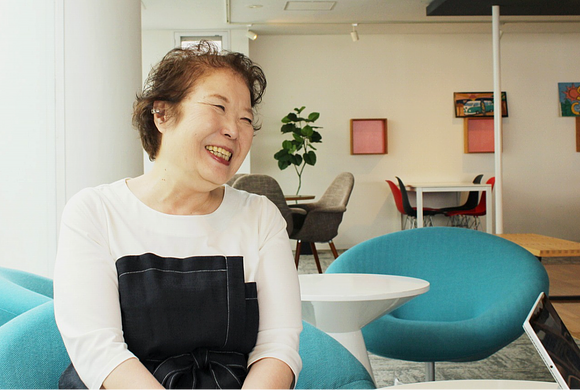
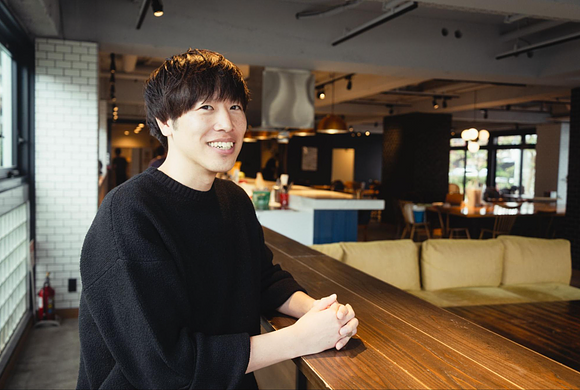
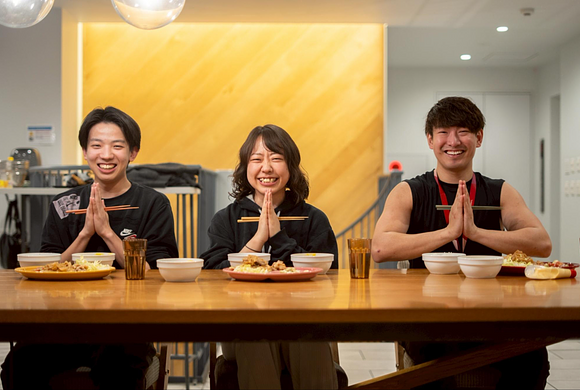
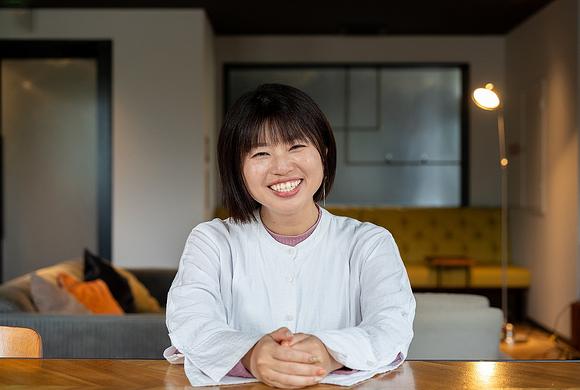

















![[Resident Interview] From Speaking Zero Japanese to Achieving Conversational Level in Just 6 Months by Living in a Social Apartment](https://sa-site-production-strg.s3.ap-northeast-1.amazonaws.com/od9hoiwnt3x2st9qnj6vl7h09bs4)


![ワールドネイバーズカフェ護国寺で働くスタッフの想い | ワールドネイバーズ護国寺 [インタビュー]](https://sa-site-production-strg.s3.ap-northeast-1.amazonaws.com/9tfk0pgm5nsrtghmiglja6mhpthw)
![ソーシャルアパートメントはロールモデルの宝庫。就活後に入居を決めた理由とは<後編> | ネイバーズ東十条 [インタビュー]](https://sa-site-production-strg.s3.ap-northeast-1.amazonaws.com/qr2lkvy0mtevpz7xik1kqvapgyo7)
![ソーシャルアパートメントはロールモデルの宝庫。就活後に入居を決めた理由とは<前編> | ネイバーズ東十条 [インタビュー]](https://sa-site-production-strg.s3.ap-northeast-1.amazonaws.com/o6kg67ti8q4le46uf1lkzaki5pei)
![「やってみたい」を一緒に叶える仲間と繋がる暮らし。4物件80人で実現した大運動会 | ソーシャルアパートメント宮前平 [インタビュー]](https://sa-site-production-strg.s3.ap-northeast-1.amazonaws.com/g3fvgonck0qjl42x9xkcs81kc6ed)
![必要なのは好奇心と少しの思い切り | ネイバーズ五反田 [インタビュー]](https://sa-site-production-strg.s3.ap-northeast-1.amazonaws.com/7vo0zi8o2dyucfyn0zudr35eu9xw)
![きっかけは幼なじみのInstagram?一歩踏み出すのは誰かの些細な一言 | ネイバーズ立川 [インタビュー]](https://sa-site-production-strg.s3.ap-northeast-1.amazonaws.com/79vwqdp9xvg7lcn05m885zodv855)
![幅広い年齢層・国籍が交差する環境で学生時代を過ごすということとは<後編> | ワールドネイバーズ護国寺 [インタビュー]](https://sa-site-production-strg.s3.ap-northeast-1.amazonaws.com/3k3t8wilnh88vaonuw2kpk3uumm5)
![幅広い年齢層・国籍が交差する環境で学生時代を過ごすということとは<前編> | ワールドネイバーズ護国寺 [インタビュー]](https://sa-site-production-strg.s3.ap-northeast-1.amazonaws.com/upyhz6d3ayq6tq1b3mqykdmx8045)

![上京時にソーシャルアパートメントという選択肢 | ソーシャルアパートメント大泉学園 [インタビュー]](https://sa-site-production-strg.s3.ap-northeast-1.amazonaws.com/j4nnzjgpglsmgzby45fciz7bkysl)
![自然な交流を生み出す住まいに魅せられて | ソーシャルアパートメント三鷹 [インタビュー]](https://sa-site-production-strg.s3.ap-northeast-1.amazonaws.com/ur721yat7srd36ovc8a1k3xyfh41)
![特技はヴィーガンチーズケーキ作り?料理をとことん楽しむ吉祥寺暮らし | ネイバーズ井の頭公園 [インタビュー]](https://sa-site-production-strg.s3.ap-northeast-1.amazonaws.com/hlpod24o2yix5rcx745bjoj29olf)
![男性2人に聞いた、暮らしの一問一答 | ターミナルズ高槻 [インタビュー]](https://sa-site-production-strg.s3.ap-northeast-1.amazonaws.com/sbw8il8hnte23fhcd9fdkhkve2u5)
![男女ペアに聞いた、暮らしの一問一答 | ターミナルズ高槻 [インタビュー]](https://sa-site-production-strg.s3.ap-northeast-1.amazonaws.com/xucm78pwurqyc4hq13x8sxns0dls)
![女性2人に聞いた、暮らしの一問一答 | ターミナルズ高槻 [インタビュー]](https://sa-site-production-strg.s3.ap-northeast-1.amazonaws.com/htun54209uv05de4wn8xrr0vpv47)
![「意図せず交流が生まれる場」.andworkとSOCIAL APARTMENTの共通点 | FILMS和光 [インタビュー]](https://sa-site-production-strg.s3.ap-northeast-1.amazonaws.com/5e8pjey5908wr6lugceuff3j0vy8)
![入居者約60人を集めた「ボディメイキング コンテスト」主催者が語る企画の裏側 | ワールドネイバーズ護国寺 [インタビュー]](https://sa-site-production-strg.s3.ap-northeast-1.amazonaws.com/xl2s452bxhbnaci16pzykfpdjp30)

![幼なじみと入居したソーシャルアパートメントでの暮らし | ターミナルズ高槻 [インタビュー]](https://sa-site-production-strg.s3.ap-northeast-1.amazonaws.com/x2y0yan7qot1mor8vpl2s1kst4wq)





![日本とアメリカを繋げることができたら | ネイバーズ渋谷神山町 [インタビュー]](https://sa-site-production-strg.s3.ap-northeast-1.amazonaws.com/qr644oamlr4u6rw7zkiuh7jenwsz)




















